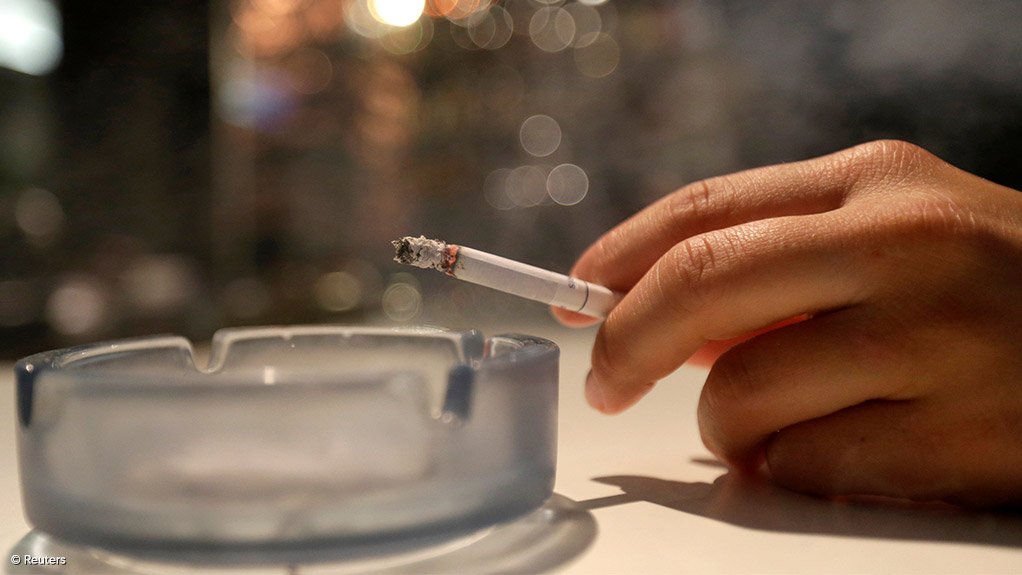/ MEDIA STATEMENT / The content on this page is not written by Polity.org.za, but is supplied by third parties. This content does not constitute news reporting by Polity.org.za.
The South Africa Tobacco Transformation Alliance (SATTA) calls for an urgent investigation into revelations of an illicit international axis involving Zimbabwean tobacco smugglers, South African business, and the Chinese state cigarette manufacturer.
The corrupt relationship between these players is revealed in a report on Cartel Power Dynamics in Zimbabwe, published on the Maverick Citizen news website on Tuesday, 08 February, as part of an exposé of cigarette cartels and other corrupt activities.
The report says there is hard evidence of under-pricing of tobacco shipments between China, Zimbabwe and South Africa, and that this – along with a number of other factors – is fuelling illicit trade.
“Tobacco is being directly exported from Zimbabwe to China at market price, then purported to be exported to [an unnamed] South African middleman,” the report says. “The middleman receives the payment from China, retains a significant amount in South Africa, and remits a smaller amount to Zimbabwe as the export price.
“Given that 99.5 per cent of tobacco exported to China from Zimbabwe between 2014-18 was falsely declared as exports to South Africa, there are clear indications that certain exporters are colluding to keep the export prices low.”
The report also points out that “under the Mugabe administration, the majority of cigarettes smuggled to South Africa were Pacific Cigarettes Gold Leaf Tobacco brands”. These brands, it says “were produced by members of Mugabe’s patronage network.” It also states that Pacific cigarettes are “the most seized brand by South African law enforcement agencies”.
Pacific Cigarette Company is owned by Adam Molai, late President Robert Mugabe’s nephew-in-law, and the Chinese state-owned cigarette company, according to the report.
Gold Leaf Tobacco Zimbabwe is currently headed by South African-based Simon Rudland, who the report points out was arrested for cigarette smuggling in the mid-2000s. The Rudland family “enjoyed the patronage of Mugabe as evidenced by Mugabe leasing one of his farms to Hamish Rudland”, who is a Harare businessman.
Smuggling networks
The same report also provides some startling details on those involved in the transportation to South Africa of smuggled cigarettes by rail, road and air.
“Lonhro Ltd stands out as a key transporter of smuggled cigarettes. Law enforcement agencies have also intercepted smuggled cigarettes that have been transported via road using Rollex (Pvt) Ltd haulage trucks. Rollex is a subsidiary of Lonhro,” the report states.
The Rudland family own two haulage trucking businesses – Pioneer Corporation Africa (PCA) and Unifreight Africa Limited (UAL)
“Law enforcement agencies have also intercepted smuggled cigarettes on an airline, Fastjet, which is another Lonhro subsidiary.”
The report states that smuggled cigarettes “have also been found in rail wagons hidden beneath timber poles. It has been alleged that some cigarettes that are smuggled by rail are transported to the premises of PFC Integration, a company run by Paul de Robillard”. Others “have been transported by road using the South African-registered Rollex (Pvt) Ltd’s haulage trucks”. Rollex, founded by De Robillard, is a subsidiary of Lonhro.
De Robillard is business partners with Durban businessman Yusuf Kajee who, according to the report, has already been under investigation by SARS for his activities in Amalgamated Tobacco Manufacturers (ATM).
Action is needed
The report on Zimbabwe’s cartels confirms the view of SATTA, as the voice of the legal tobacco products industry, that urgent action needs to be taken against all those involved in the production and distribution of illicit tobacco.
Their activities are criminal and are undermining the South African economy, and in particular the law-abiding farmers, processors and manufacturers who are trying their best in the face of an onslaught of illicit products, particularly since the introduction of COVID-19-related lockdowns.
SATTA believes the details of individuals and businesses provided in the report are more than enough ammunition for the South African authorities to institute an immediate investigation and a crackdown on the businesspeople, freight companies and others involved in illicit activity.
We urge them to act with speed to bring to book those named in the report, and to help turn the tide against the growing illicit trade in tobacco products.
Issued by The South Africa Tobacco Transformation Alliance
EMAIL THIS ARTICLE SAVE THIS ARTICLE ARTICLE ENQUIRY
To subscribe email subscriptions@creamermedia.co.za or click here
To advertise email advertising@creamermedia.co.za or click here











